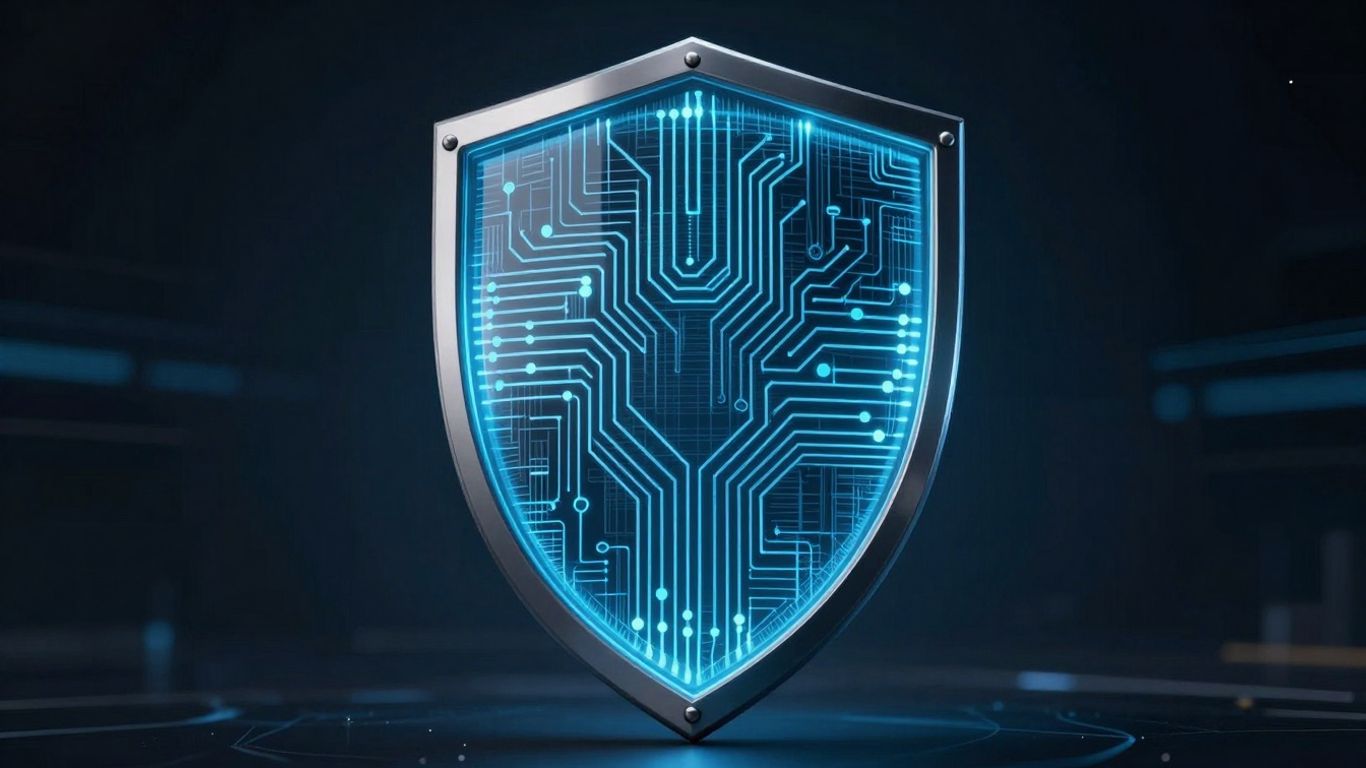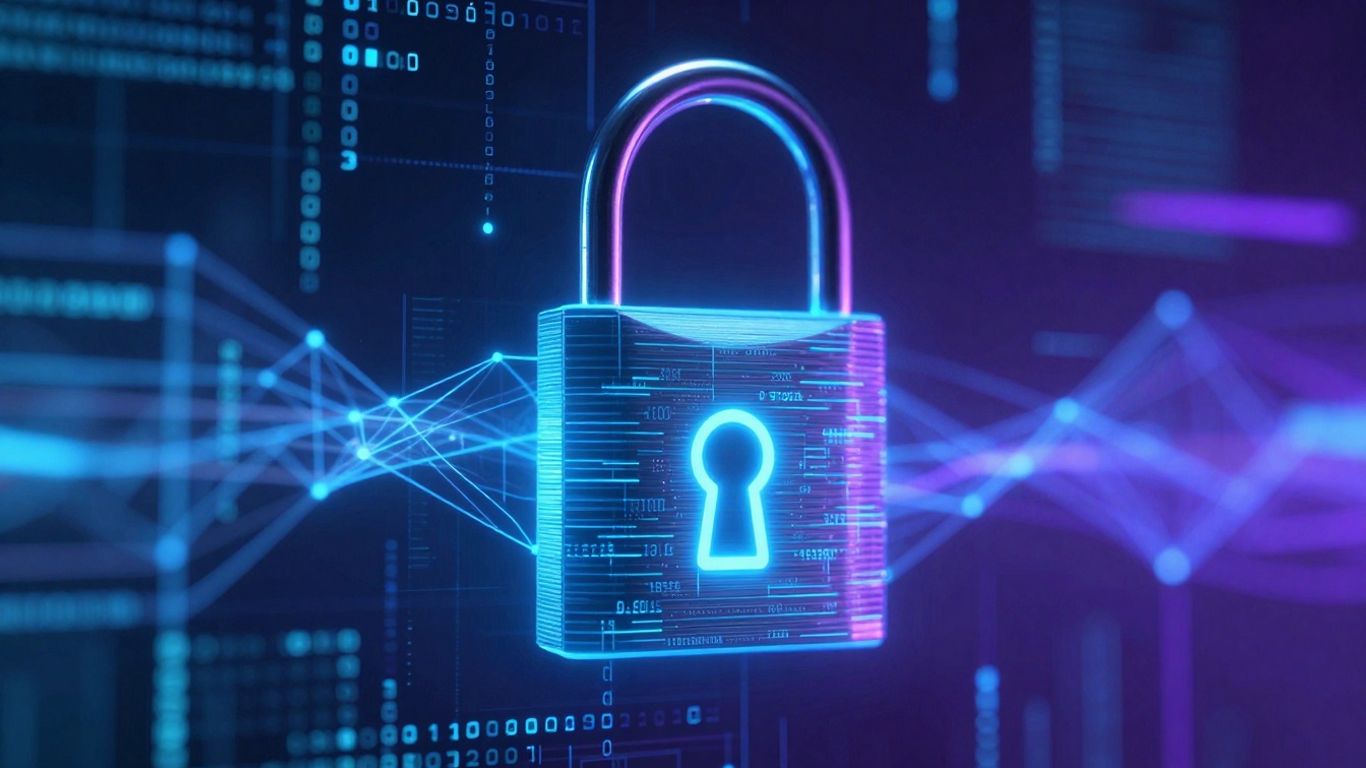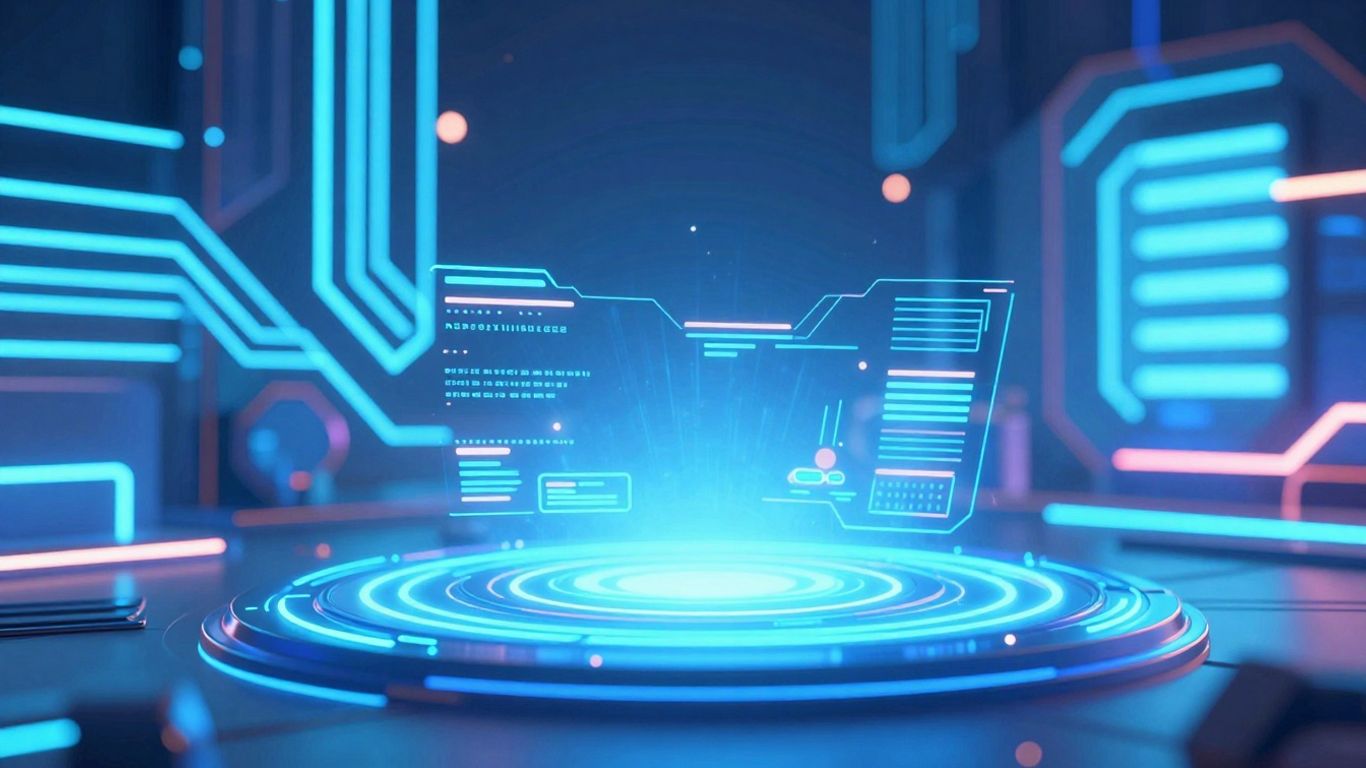[ newsletter ]
Stay ahead of Web3 threats—subscribe to our newsletter for the latest in blockchain security insights and updates.
Thank you! Your submission has been received!
Oops! Something went wrong. Please try again.
Explore AI smart contract audit for rapid, accurate, and cost-effective security. Discover Veritas AI's advanced framework for vulnerability detection and continuous monitoring.





Smart contracts are the backbone of so many new blockchain projects, handling everything from simple token transfers to complex decentralized finance operations. But with great power comes great responsibility, and the immutability of these contracts means that any tiny bug can turn into a massive problem, leading to serious financial losses. Traditional ways of checking these contracts can be slow and expensive. That's where AI comes in, promising to speed things up and make audits more accessible. This article looks at how an ai smart contract audit is changing the game.
Smart contracts are basically programs that live on the blockchain. They automatically execute actions when certain conditions are met, kind of like a digital vending machine. You put in your crypto, and the contract does its thing – maybe it sends you a token, or executes a trade. This automation is super cool because it cuts out the middleman and can make things faster and more transparent. But here's the catch: once a smart contract is out there on the blockchain, it's pretty much set in stone. You can't easily go back and change it. This immutability is a double-edged sword. While it makes them secure in one way, it also means that if there's a mistake, a bug, or a vulnerability in the code, it can be exploited. And when we're talking about contracts that handle millions, or even billions, of dollars, a small flaw can lead to massive losses. Think of the DAO hack back in 2016 – a single vulnerability cost people a fortune. So, keeping these contracts safe isn't just a good idea; it's absolutely necessary for trust and security in the whole crypto world.
So, how do we make sure these digital agreements are safe before they go live? Traditionally, we rely on smart contract audits. This usually involves a team of human experts poring over the code, looking for any potential problems. It's a bit like a building inspector checking blueprints before construction. These manual audits can be pretty thorough, and they've caught a lot of issues over the years. However, they're not perfect. For starters, they take a really long time. We're talking weeks, sometimes even months, for a complex contract. This is a big problem in the fast-paced crypto world where projects want to launch quickly. Plus, these audits are expensive. Hiring a top-tier auditing firm can cost tens of thousands of dollars, which is out of reach for many smaller projects. And even with all that time and money, human auditors can still miss things. They might overlook a subtle bug or a new type of exploit that hasn't been seen before. It's a bit like trying to find a needle in a haystack, and sometimes, the needle is just really well hidden.
Given the speed and complexity of today's blockchain world, relying solely on manual audits just doesn't cut it anymore. The sheer volume of smart contracts being developed, coupled with the constant emergence of new attack vectors, means we need a faster, more efficient way to check for vulnerabilities. This is where automation comes in. Think about it: instead of waiting weeks for a human to review code, an automated system could potentially scan it in hours, or even minutes. This speed is a game-changer, especially for projects that need to deploy quickly or iterate rapidly. Automation also promises to make security more accessible. By reducing the cost and time involved, automated tools can bring robust security checks within reach of a wider range of projects, not just the big players with huge budgets. It's about leveling the playing field and making sure that security isn't a luxury, but a standard practice for everyone building on the blockchain. The future of smart contract security is undeniably leaning towards automated solutions.
Smart contracts are the backbone of so many blockchain applications, but they can be tricky. Finding every single bug before something goes wrong is a huge challenge. That's where AI comes in, changing the game for how we check these contracts.
Think of AI as a super-powered magnifying glass for code. Instead of humans slowly sifting through lines of code, AI can scan through it incredibly fast, spotting potential issues that might be missed otherwise. It's not just about speed, though. AI can analyze patterns and complex logic that even experienced auditors might overlook.
AI isn't just about finding bugs; it's about understanding the intent of the code and whether it truly matches the developer's goals, all while operating at a speed that keeps up with the fast-paced crypto world.
We're moving beyond simple AI tools to more sophisticated systems. Imagine a team of specialized AI agents, each with its own role, working together to audit a smart contract. One agent might focus on checking for common vulnerabilities, another on verifying the business logic, and yet another on looking at how different parts of the contract interact.
This multi-agent approach allows for a more thorough and dynamic audit. These agents can simulate different scenarios, test edge cases, and even learn from each other's findings, creating a more robust security check.
Machine learning is the engine driving much of this AI advancement. By feeding ML models with data from past smart contract audits, known exploits, and secure code examples, these models learn to predict where vulnerabilities might hide. This predictive capability is a game-changer.
This data shows how ML can significantly speed up the detection of common issues and improve the overall accuracy of audits. It's about making smart contracts safer by learning from past mistakes and anticipating future threats.
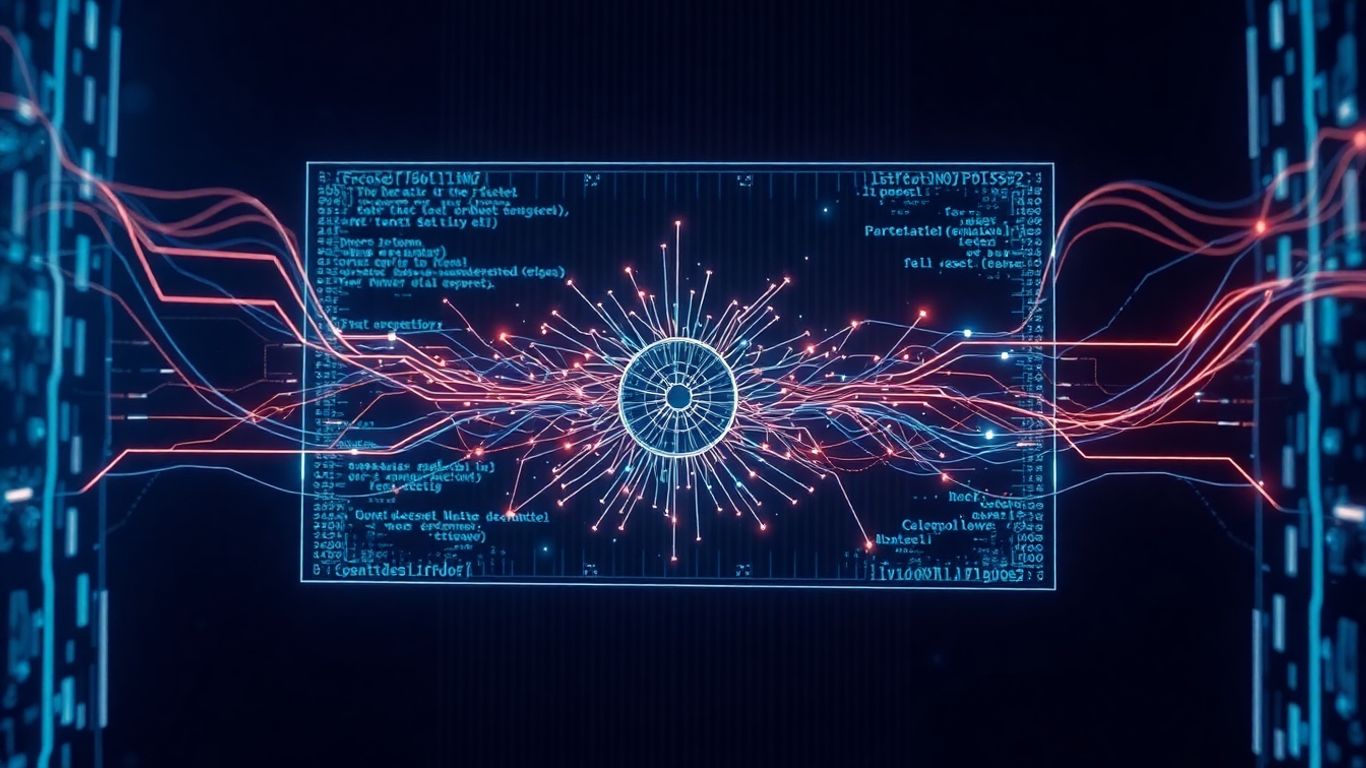
AI is really changing the game when it comes to checking smart contracts. It's not just about finding bugs faster, though that's a big part of it. AI brings a whole new level of detail and foresight that manual checks just can't match. Think of it as having a super-powered assistant who never sleeps and knows all the tricks hackers might try.
One of the coolest things AI can do is not just spot a problem, but also suggest how to fix it, and sometimes even do it automatically. This is a huge step up from just getting a report that says 'here's what's wrong.' Imagine a smart contract having an issue, and the AI debugger immediately flags it, explains why it's a problem, and offers a code snippet to correct it. This speeds up the whole development cycle considerably. It's like having an AI pair programmer that's also a security expert.
AI doesn't just look at the code you've written; it can also look at the bigger picture. By analyzing tons of data from past exploits and current market trends, AI can start to predict what kinds of attacks might be coming next. It's like having a crystal ball for cybersecurity. This means projects can get ahead of potential threats before they even become a problem. This kind of proactive security is something we've really needed in the blockchain space.
Smart contracts aren't static; they live and breathe on the blockchain. AI systems can keep an eye on them 24/7, watching for any unusual activity or signs of an attack. If something looks off, it can alert the team immediately. Plus, these AI systems learn as they go. As new types of exploits emerge, the AI can adapt and update its knowledge base, making it even better at spotting future threats. It’s a system that gets smarter over time, which is exactly what you want when dealing with evolving security challenges. You can even get a free AI-powered security assessment for your code to see how it holds up. Upload your code.
The ability of AI to process vast amounts of data and identify complex patterns far exceeds human capabilities, making it an indispensable tool for modern smart contract security. This continuous learning and adaptation are key to staying ahead in the ever-changing landscape of cyber threats.
When it comes to securing smart contracts, especially in the fast-paced world of Web3, traditional methods can feel like trying to catch a speeding bullet with a butterfly net. That's where the Veritas AI Smart Contract Audit Framework comes in. It's built to tackle the complexities of modern blockchain code head-on, using artificial intelligence to speed things up and make audits more thorough. Think of it as a highly specialized tool designed from the ground up for smart contract security.
Veritas isn't just another automated scanner. It's built on a sophisticated AI architecture, specifically fine-tuned for auditing smart contracts. This means it's not just looking for common bugs; it's designed to understand the nuances of blockchain code. The system has been trained on a massive dataset, including tens of thousands of smart contracts and a comprehensive history of known exploits. This extensive training allows Veritas to act much like an experienced auditor, reasoning through code to find potential issues that simpler tools might miss. It's about bringing a higher level of precision to the audit process, making it faster and more reliable than ever before. You can explore some of its capabilities through tools like the Veritas Explorer.
The real magic behind Veritas lies in how its AI models are trained. They don't just learn general coding patterns; they're specifically fine-tuned to hunt for smart contract vulnerabilities. This involves several key areas:
tx.origin. This focused training helps it become exceptionally good at spotting these common, yet dangerous, flaws.One of the significant challenges in smart contract auditing is understanding how different parts of a large codebase interact, or how a contract fits within a broader ecosystem. Veritas addresses this with its long-context analysis capabilities, allowing it to process and understand much larger chunks of code at once. This is crucial for identifying complex, system-wide vulnerabilities. Furthermore, Veritas has a specialized focus on Ethereum Request for Comment (ERC) standards, such as ERC20, ERC721, and ERC1155. By being trained on both compliant and non-compliant examples, it can accurately identify violations of these widely used standards, which is a common source of security issues.
The framework's ability to process extensive code context and its specialization in ERC standards mean it can provide a more holistic and accurate security assessment, going beyond simple line-by-line checks to understand the contract's behavior within its intended environment.
When we talk about AI in smart contract auditing, it's not just about making things faster, though that's a big part of it. It's about fundamentally changing how we approach security in the blockchain space. Think about it: traditional audits can take weeks, sometimes months, and cost a small fortune. For many projects, especially newer ones, that's just not feasible. AI changes that equation entirely.
AI tools can scan through code at a speed that's simply impossible for humans. We're talking about finding potential issues in hours, not weeks. This speed doesn't come at the cost of accuracy, either. AI models are trained on vast amounts of data, including past exploits and vulnerabilities. This allows them to spot patterns and anomalies that a human auditor might miss, even with years of experience. It's like having a super-powered magnifying glass for your code.
Because AI can perform audits so much faster and with less human intervention, the cost drops dramatically. This makes professional-grade security audits accessible to a much wider range of projects. Startups and smaller development teams that might have been priced out of traditional audits can now afford to secure their smart contracts properly. This democratization of security is a huge win for the entire ecosystem.
The reduction in cost and time means that security is no longer a luxury for well-funded projects. It becomes a standard practice, available to almost anyone building on the blockchain. This shift is vital for building a more secure and trustworthy decentralized future.
Beyond just finding bugs, AI can also help in creating verifiable and immutable proof of an audit. Some systems are exploring concepts like
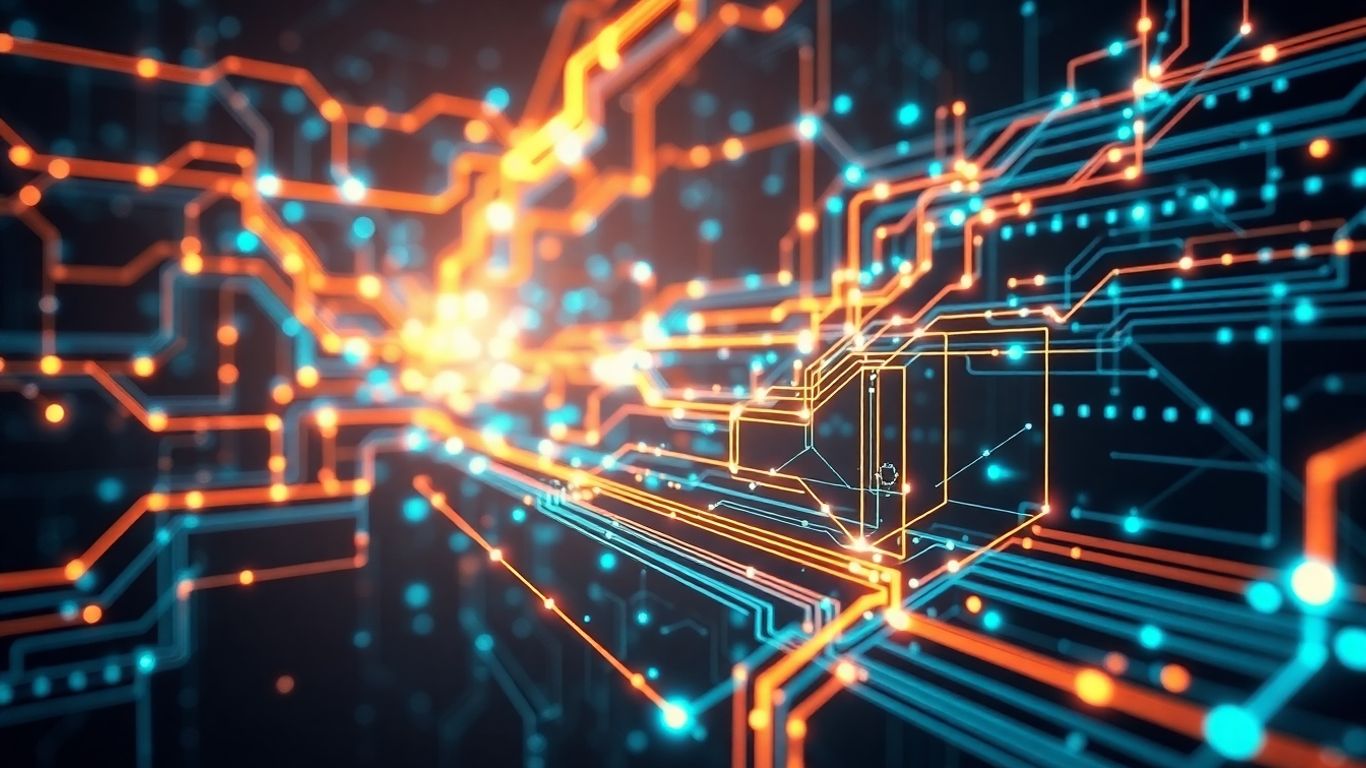
So, you've got your smart contract code ready, and you're thinking about getting it checked out. It's not just about running a quick scan and calling it a day. There's a definite process to it, even with AI stepping in to speed things up. Think of it like getting a car inspected – you wouldn't just hand over the keys and hope for the best. You want to know what's happening, step-by-step.
Before any fancy AI tools even look at your code, there's some groundwork to do. This is where you, or your development team, get everything in order. You need to clearly define what the contract is supposed to do – its goals and how it's meant to function. Then comes the code review. This isn't just a quick glance; it's a detailed look, line by line. The idea here is to catch any obvious bugs or inconsistencies yourself. It's like cleaning up your workspace before a big project. This way, the auditors, whether human or AI, can focus on the trickier security stuff instead of basic errors you could have spotted. It’s important to have a solid understanding of the code before handing it over for external review.
This is where AI really shines, but it's not the whole story. The first pass usually involves automated tools. These are great for quickly spotting common vulnerabilities and saving time. Think of tools like Slither or Mythril; they can scan through a lot of code pretty fast. However, these tools have their limits. They can't always grasp the nuances of how a contract might be used in unexpected ways or the 'human element' of potential exploits. That's why a manual testing phase is still super important. It's about combining the speed of AI with the deeper, more intuitive analysis that experienced auditors can provide. It’s a bit like having a super-fast robot assistant and a seasoned detective working together.
Once all the checks are done, you get a report. This isn't just a simple 'pass' or 'fail' sticker. A good audit report will detail all the issues found, often categorized by how serious they are. It should also suggest ways to fix these problems. You'll also want to review the documentation that came with the audit to make sure it clearly explains the contract's intended behavior and how the audit findings relate to it. After you've implemented the suggested fixes, there's usually a final review to confirm everything is good to go. This whole process is about building confidence that your smart contract is as secure as it can be before it goes live.
The audit process, even with AI, is a collaborative effort. It requires clear communication between the development team and the auditors, whether they are AI systems or human experts. Documenting everything thoroughly ensures transparency and provides a clear record of the security measures taken.
While AI brings some serious speed and accuracy to smart contract audits, it's not like flipping a switch and calling it a day. There are definitely some hurdles we need to jump over to make sure these AI tools are actually doing their job right and keeping things secure.
One of the big questions is how do we know the AI is actually competent? It's trained on a lot of data, sure, but can it really grasp the nuances of complex code like a seasoned human auditor? We need to make sure the AI isn't just pattern-matching but truly understanding the logic. Plus, who's checking the AI's work? We can't just blindly trust the output. It's like having a super-smart intern – they can do a lot, but you still need a manager to review and sign off.
The goal isn't to replace human auditors entirely, but to augment their capabilities. Think of AI as a powerful magnifying glass, allowing auditors to focus their attention on the most critical areas and complex problems.
Hackers are always cooking up new ways to break things. What works today might be old news tomorrow. AI models need to keep up. If an AI is only trained on past exploits, it might miss brand-new attack vectors. This means the AI needs to be able to learn and adapt on the fly, which is easier said than done.
This is the big one, right? How much do we automate, and when do we bring in the humans? Too much automation and we risk missing subtle issues or falling for clever tricks. Too much human involvement and we lose the speed advantage AI offers. Finding that sweet spot is key. It's about using AI to do what it does best – crunching data and finding patterns – while relying on human intuition and experience for the really tricky stuff.
So, we've talked a lot about how AI is changing the game for smart contract audits. It's not just about finding bugs faster, though that's a huge plus. We're seeing AI tools that can actually suggest fixes in real-time, which is pretty wild. Plus, the idea of automated, 24/7 checks and even insurance against hacks makes things feel a lot more secure. While traditional audits have their place, it's clear that AI is stepping in to make things quicker, cheaper, and hopefully, a lot safer for everyone involved in the blockchain space. It's an exciting time, and this technology is only going to get better.
Think of a smart contract like a digital agreement that automatically follows through on its promises. It's written in code and lives on a blockchain. If certain conditions are met, the contract does what it's supposed to do, like sending money or unlocking a digital item, all by itself without needing a middleman.
Smart contracts are super important because once they are put on the blockchain, they can't be changed. If there's a mistake or a weak spot in the code, hackers could use it to steal money or cause other problems. Checking them carefully, called auditing, is like making sure a digital vault is locked tight before you put valuables inside.
AI is like a super-smart assistant for checking smart contracts. It can look through tons of code much faster than a person, finding potential problems that might be missed. AI uses special techniques to understand the code's structure and how it works, making the checks quicker and often more accurate.
Regular audits usually involve people carefully reading the code, which takes a long time and can be expensive. AI audits use computer programs to do a lot of the checking automatically. This means they can be done much faster, often cost less, and can keep checking for problems all the time, not just once.
While AI is incredibly powerful for finding many types of bugs quickly, it's not quite ready to replace humans entirely. Complex problems or new kinds of attacks might still need a human's creative thinking and experience to fully understand and fix. The best approach often combines the speed of AI with the insight of human experts.
The biggest benefits are speed and cost. AI can find problems way faster than people, which saves a lot of time and money. It also makes security checks more available to smaller projects that might not afford expensive manual audits. Plus, AI can continuously monitor contracts, offering ongoing protection.
